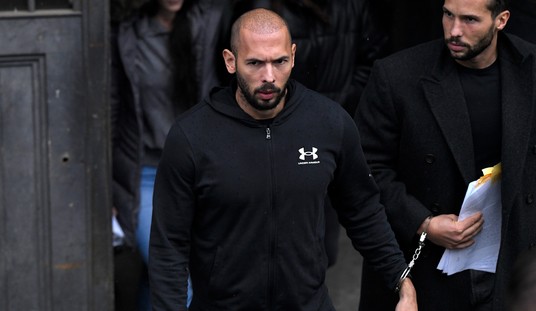How would he know? When asked by MSNBC, the nation’s top legal officer hadn’t even bothered to read the 238-page report from the normally-pliant Privacy and Civil Liberties Oversight Board (PCLOB) that concluded that Section 215 of the PATRIOT Act gave insufficient legal basis for the collection and retention of massive amounts of data from American domestic communications. At least one federal judge has similarly ruled, although 15 others have reached the opposite conclusion.
Holder says, just be patient, or something:
Attorney General Eric Holder dismissed a new government watchdog report which declared some NSA programs illegal, insisting that the spy agency’s vast secret surveillance is on strong legal footing.
In an exclusive, wide-ranging interview on Thursday with msnbc, Holder also spoke about new voting rights legislation, Republican Voter ID laws, Wall Street prosecutions and the Obama administration’s efforts to reform the War on Drugs with more rehabilitation programs. (See video below.)
On the NSA findings, Holder said he hadn’t read the new report from the government’s privacy and civil liberties board, but noted that “at least 15 judges on about 35 occasions have said that the program itself is legal.”
When asked about judges who disagree, including a Washington federal court that rebuked the bulk data collection last month, Holder, himself a former Washington judge, contended the legal consensus is now clear.
Ah, it’s the consensus that Holder reviews, and not the actual report itself. Holder did insist that he’s working with a key official to ask whether the NSA should conduct that kind of collection and retention, even if it can. However, the key official in this case is James Clapper, the man who repeatedly lied to Congress about the NSA program, so good luck in getting a straight answer there.
Maybe Holder will just look for consensus again. But isn’t it the job of the Department of Justice to investigate potential wrongdoing in government, rather than just sit back and watch consensus develop? Or at least show some interest in reading a government panel’s report that declares it illegal before dismissing that conclusion out of hand?
The Attorney General does have some good news for Edward Snowden in another appearance. He’s open to cutting a plea deal with the man who stole the nation’s most sensitive secrets, and then skipped the country:
Attorney General Eric Holder said Thursday that prosecutors would hold talks with National Security Agency leaker Edward Snowden if he were willing to plead guilty to criminal charges.
“If Mr. Snowden wanted to come back to the United States and enter a plea, we would engage with his lawyers. We’d do that with any defendant who wanted to enter a plea of guilty,” Holder said during an appearance at the University of Virginia’s Miller Center.
While the attorney general suggested a plea deal was a possibility, he dismissed calls for a pardon that would absolve Snowden of legal responsibility for disclosing classified information he obtained while working in Hawaii as a contractor for the NSA. In recent weeks, editorials in the New York Times and Britain’s Guardian newspaper urged some form of amnesty for Snowden because of the debate over surveillance triggered by his revelations.
“We’ve always indicated… that the notion of clemency was not something we were willing to consider,” Holder said at UVA. “Were he to come back to the United States and enter a plea, we would engage with his lawyers.”
Snowden got better news from Russia today:
Snowden has said the time isn’t right for him to return to the United States, where he could face criminal charges for leaking classified information. Russia gave him asylum for a year.
Now Russia says it will continue to extend asylum protections to Snowden and won’t send him back home.
That word came Friday from Alexy Pushkov, a legislator who is head of the Foreign Affairs Committee in the Duma, Russia’s lower house. He spoke about Snowden at the World Economic Forum in Davos, Switzerland.
Snowden wants to return home, he says, but not to face legal action:
In an online chat Thursday, Snowden said that returning to the U.S. “is the best resolution for all parties,” but “it’s unfortunately not possible in the face of current whistle-blower protection laws.”
He pointed out that the U.S. government’s Whistleblower Protection Act doesn’t cover someone like him, a former government contractor.
“There are so many holes in the laws, the protections they afford are so weak, and the processes for reporting they provide are so ineffective that they appear to be intended to discourage reporting of even the clearest wrongdoing,” he wrote. “… My case clearly demonstrates the need for comprehensive whistle-blower protection act reform.”
So the plea deal isn’t on track, then. Had Snowden limited his revelations to just the Section 215 surveillance, I’d be more open to the “whistleblower” argument. But he didn’t; he exposed other surveillance efforts that were entirely legitimate (if embarrassing) efforts at capturing foreign signals intelligence, harming our ability to conduct those efforts and the partnerships that our intelligence agencies need to coordinate security and counter-terrorism efforts. If, however, the US thinks he has even more damaging material to release, CNN’s discussion shows that it might make sense to get Snowden out of the cold and resecure the material:
http://www.youtube.com/watch?v=WakMGGWlYFY







Join the conversation as a VIP Member